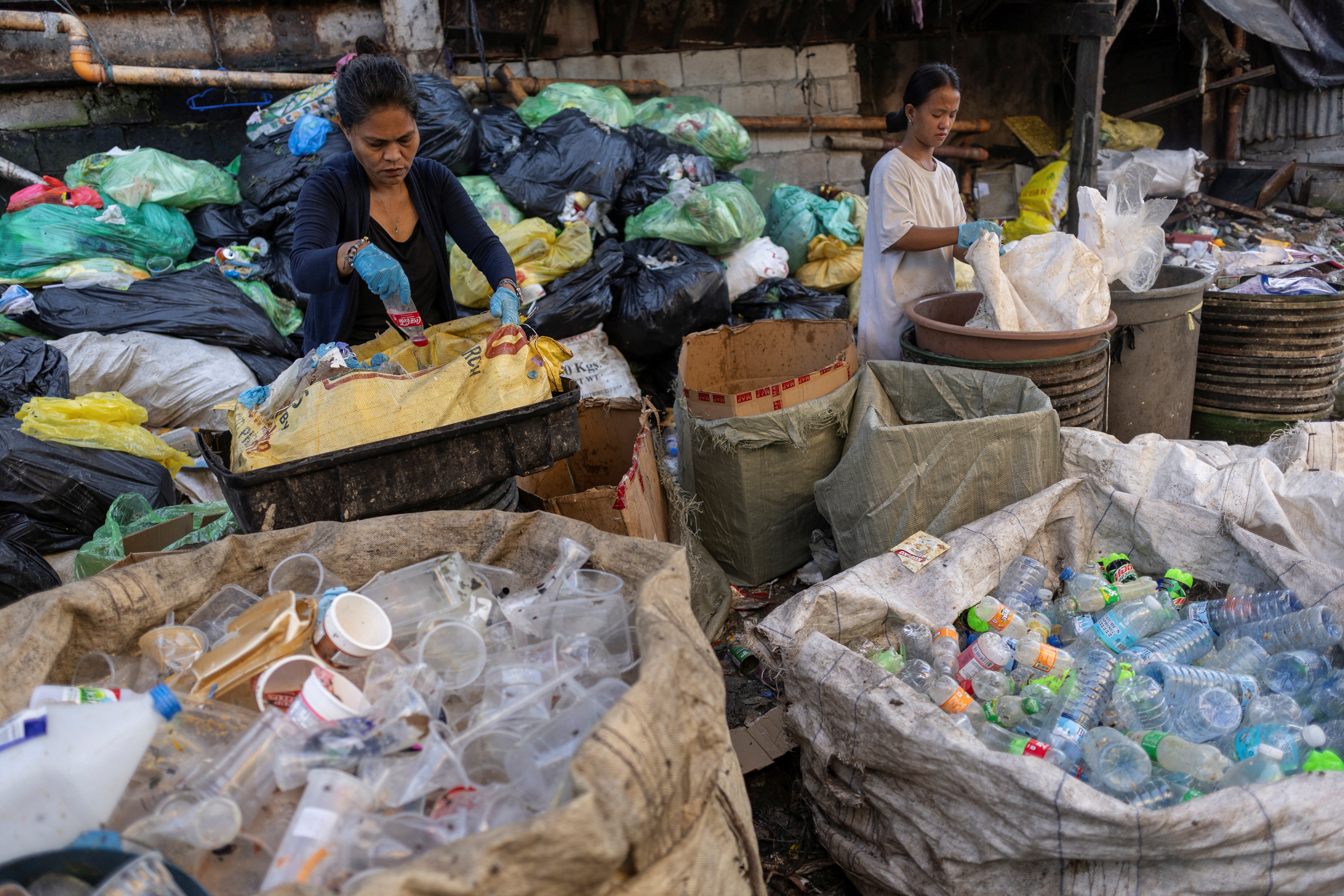3 ways to improve recycling behaviour and boost the circular economy

Recycling behaviour changes are key to the circular economy. Image: Delterra
Listen to the article
- Global recycling rates are disappointingly low at 16%.
- Recycling behaviour changes are key to the circular economy.
- A non-profit has found success with projects in Indonesia and Argentina.
Despite decades of promoting recycling, global rates are stuck at a disappointing 16%. Improved design, technologies and access for reuse and recyclability are critical to closing the gap. But better recycling behaviours are just as important for making the shift to a truly circular economy.
Delterra, a global NGO, understands the importance of tackling behaviour to drive change across the circular economy as a whole. Its project communities in Indonesia and Argentina have driven up recycling participation rates from less than 5% to over 50% in some cases in just a matter of months. To date, across their global programmes, they have achieved a recyclables recovery rate as high as 50%.
This was achieved by incorporating three key factors: considering behaviour change programmes as an investment with an expected return (and showing decision-makers the quantifiable benefits of boosting recycling behaviour); understanding how infrastructure shapes behaviour and leveraging proven approaches – while still leaving room to experiment and customize programmes to meet specific communities’ needs.
What is the World Economic Forum doing about the circular economy?
1. Show decision makers the quantifiable benefits of boosting recycling behaviour
Local leaders tend to think of promoting recycling behaviour as a public awareness exercise, rather than a critical piece of recycling’s business case. Municipalities can also be skeptical of investing in the deeper community engagement and integration with waste management operations that successful behaviour change campaigns require. Applying a return-on-investment lens by comparing benefits against costs helps to make the case. Different decision makers may care about different benefits and costs, so tailoring the analysis to their priorities is important.
In Olavarría, for example, the mayor’s sustainability team was interested in the potential to qualify for plastics and carbon credits, especially since the city would see little landfilling cost savings from diverting waste into recycling.

Based just on the sales value of new recyclable material recovered, Delterra’s Rethinking Recycling behaviour change campaigns in Indonesia and Argentina are projected to earn back their cost in five years on average. If the value of other environmental benefits is included – such as avoided landfill costs and credits for preventing plastic waste or carbon emissions – the payback period can be even shorter, around two years.

2. Understand that infrastructure shapes behaviour as much as engagement campaigns
Behavioural science shows that people’s social context and physical cues in their environment are powerful shapers of behaviour, often more so than their motivation and knowledge of what to do.
Accordingly, Delterra worked to ensure that the “user experience” of waste management – equipment distributed to households, how different categories of waste are picked up, visual reminders that other neighbours and community leaders are recycling – reinforced the educational messages in outreach campaigns.
In Bali, for instance, the districts launched a new and more reliable waste collection schedule in conjunction with resident education about recycling. In the new schedule, trucks collected just one category of waste at a time, instead of picking up recyclables, compostables, and landfill waste together. This reassured residents that drivers were not just mixing the waste back up, while also providing a reminder to separate their waste since different categories were collected on different days. Meanwhile, residents heard presentations by village leaders on the importance of waste separation and received visits from educators who walked them through the right way to do it, as well as information on what happens to different types of collected waste.

3. Save time and resources by using a proven approach and experiment to learn what to customize
By working in multiple socioeconomic contexts, Delterra has developed a common framework for successfully introducing recycling to new communities in the Global South. Applying a standard overall methodology and avoiding “reinventing the wheel” allows the organization to save valuable time and resources.
One part of that standard methodology, however, involves developing a deep understanding of each community’s specific context. For any engagement campaign or change to waste management operations to be successful, taking local realities into account is critical. And often experimentation is the only way to discover what works. Small pilot projects, with clear hypotheses and metrics, can demonstrate what is working and what is failing to produce desired outcomes.

For example, in the informal settlement of Barrio Mugica, it was not clear at the outset what motivations to recycle would resonate with residents. After learning about the lived experience of families in the Barrio through deep interviews and focus groups, Delterra tested different messages focused on recycling’s connection to a safer place to live. Residents responded most positively to creating cleaner streets for their children to play in, which became a talking point for local cooperative workers when going door-to-door to talk to their neighbours about recycling.
The tagline for this model is to find out what is “universally true and culturally specific.”
How can we accelerate circular economy?
While changed behaviour is key, more systemic changes are needed for impact.
Recycling behaviours can be established in a short time, at scale, across varying community contexts. But there are limitations to the current recycling system as well.
In each context, there are additional interventions that could accelerate progress towards a circular economy:
● Higher prices for recycled materials would generate much stronger demand for waste management infrastructure and consumer recycling behaviours, accelerating action on the waste crisis.
● Environmental policies could ensure that prices for both virgin and recycled materials include their respective environmental impacts.
● Cities and sub-national governments could create stronger incentives for waste diversion, such as higher landfill fees.
● Clearer standards could bring greater confidence and more transactions in carbon credit and plastic credit markets.
These and other measures could strengthen the business case for promoting recycling behaviour – and for investing in the recycling system as a whole. In addition, sorting recyclables correctly remains a complex task for consumers. Designing products to generate less waste overall, and to be straightforward to recycle, will also go a long way.
With a human-centred design approach and enough smart investment in both supporting infrastructure and community engagement, participation in recycling can reach levels high enough to support new investments in recycling infrastructure. In a holistic approach to growing the circular economy, recycling behaviour is a powerful tool that deserves investment and innovation.
Have you read?
Our waste is valuable: how one company is creating a circular economy for plastics
Making the $4.5 trillion circular economy opportunity a reality
Circular value chains in fashion: Strengthening trust in second hand markets
Circular economy examples - how IKEA, Burger King, Adidas and more are investing in a circular economy
Don't miss any update on this topic
Create a free account and access your personalized content collection with our latest publications and analyses.
License and Republishing
World Economic Forum articles may be republished in accordance with the Creative Commons Attribution-NonCommercial-NoDerivatives 4.0 International Public License, and in accordance with our Terms of Use.
The views expressed in this article are those of the author alone and not the World Economic Forum.
Stay up to date:
Circular Economy
Forum Stories newsletter
Bringing you weekly curated insights and analysis on the global issues that matter.
More on Circular EconomySee all
Felipe Basso
November 13, 2025







